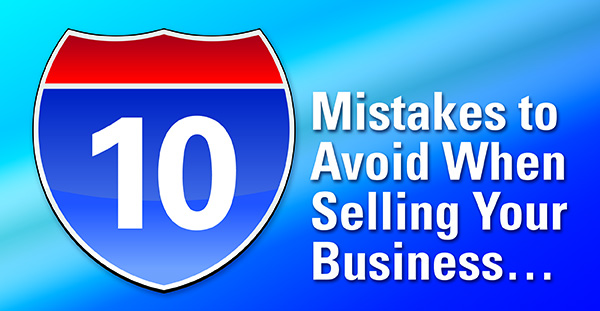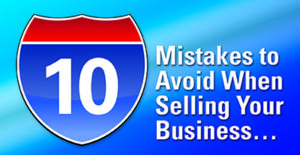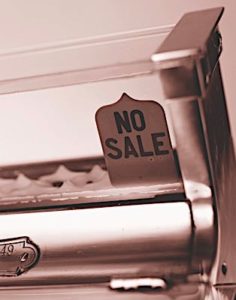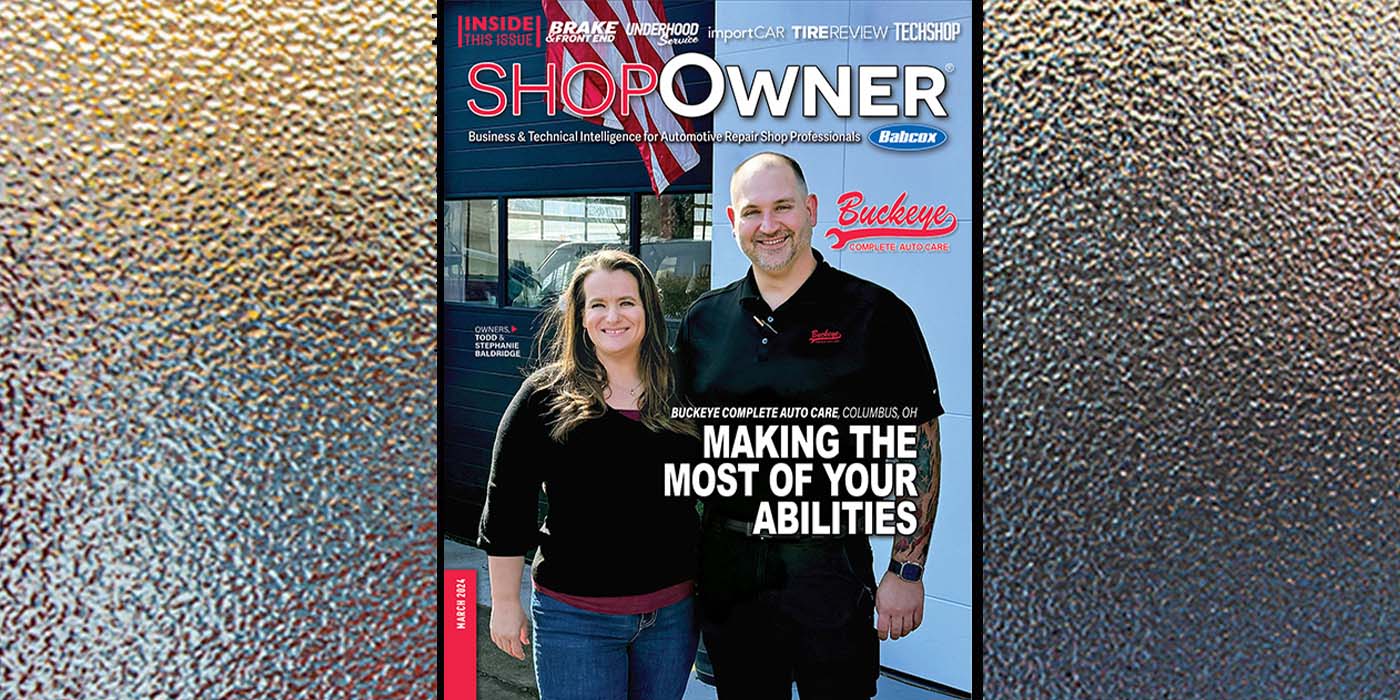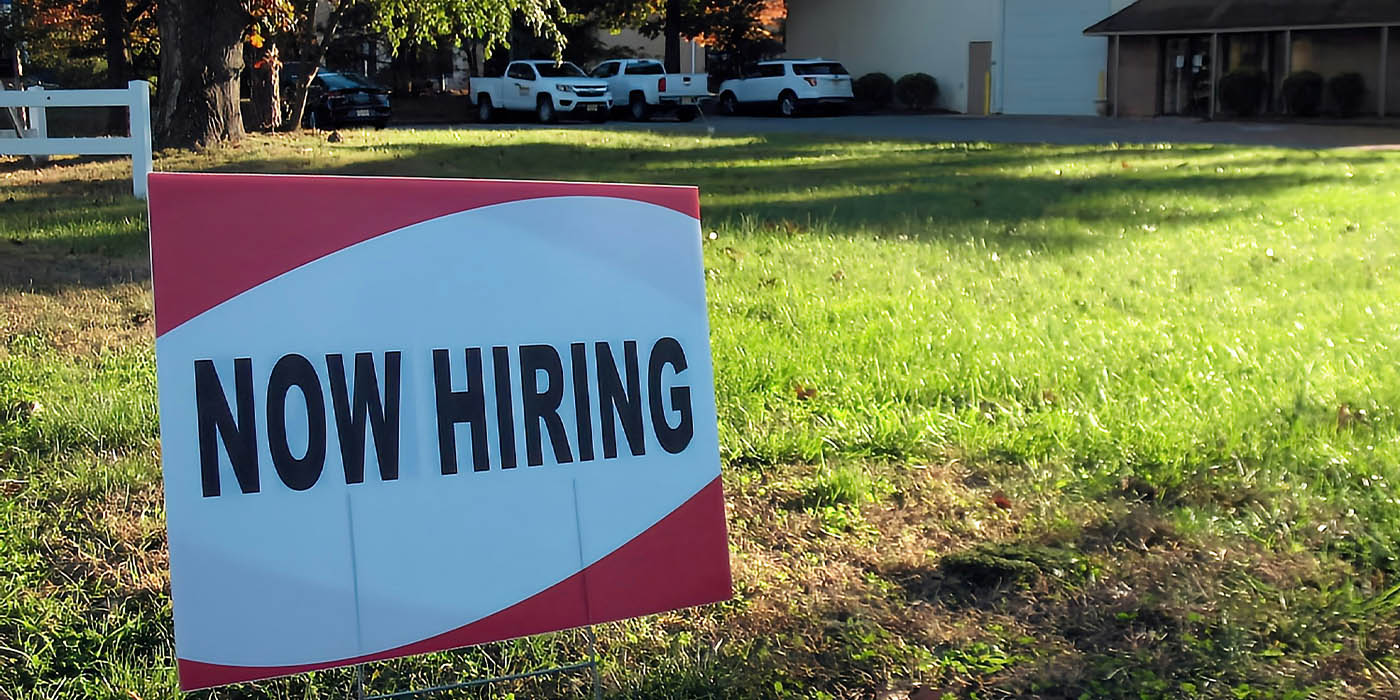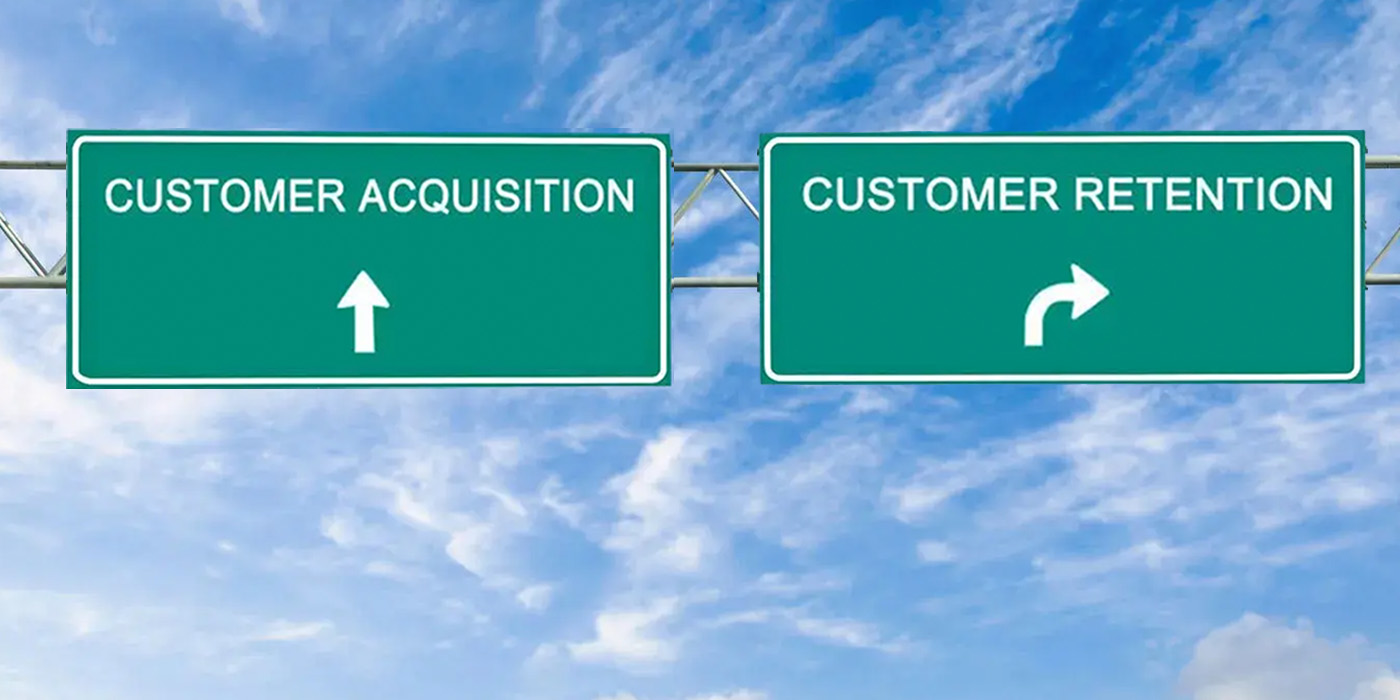The majority of challenges and frustrations experienced by sellers can be avoided with solid information about the pitfalls of selling a business in today’s market. While there are dozens of challenges to overcome, here are 10 of the most common mistakes that can have drastic repercussions and cause both stress and loss of value on a business sale.
You probably don’t expect the exit from your business to be easy, but without step-by-step guidance, most sellers are surprised by how difficult and frustrating it can be to sell their company for a good price in a reasonable timeframe, especially in the current economic environment.
This Insider’s Guide will provide insight for navigating the complexities of a successful selling transaction. Follow these tips to maximize the success of your sale and preserve your peace of mind.
Mistake 1: Failure to Prepare and Properly Package Your Business
If you were selling your house, you would obviously spruce it up before hanging a “For Sale” sign in the front yard.
Selling a business with confidentiality means you can’t advertise it by name or put up a sign, so it is even more important to address several key aspects of your business before it is marketed.
Yes, sprucing up your physical facilities will give a buyer prospect a good impression when touring your building; however, the financial condition of your business and the state of your records and documentation is most important in presenting your business in the best possible light to attract qualified buyer prospects.
Before your business can be marketed, a comprehensive Confidential Business Review (CBR) is prepared to educate prospective buyers on your business and the industry. A professionally prepared CBR will include information from the accompanying chart, so you will want to have this information readily available to provide to your broker:
A word about financials and tax returns: Most business owners and their accountants do their best to minimize taxes, not maximize profits. Remember that buyers are buying your cash flow more than anything else. While there are a variety of sophisticated methods of valuing a business, the bottom line is that the sales price of the business will likely translate to a multiple of the cash flow — so everything that can be done to present your business with the highest cash flow will directly result in a higher sales price.
Art Blumenthal Sales Tip: The best way to maximize your sales price is to run your business like you plan to keep it!
Mistake 2: Failure to Properly Price the Business
Wouldn’t you rather reap the rewards of selling your automotive business for the highest cash price than leave money on the table?
Overpricing or underpricing a business is a common mistake. It’s fine to be confident that you can successfully sell your business at a good price, but far too many business owners go into the selling process thinking that they will get top dollar simply because they believe that is what it’s worth.
True value is based on quantifiable criteria, not the seller’s emotional appraisal. One way to gauge your perspective on reality is to ask yourself if you would purchase another dealer’s business with the same sales and profits at that valuation.
Art Blumenthal Sales Tip: The bottom line is that the sales price of the business will translate to a multiple of the cash flow…
Once you and your broker have carefully analyzed your financials and identified an appropriate asking price for your business, you will have learned a valuable lesson in how buyers will evaluate your business and calculate their own price to offer you. You will know that for every dollar of cash flow increase that you can generate, you may get $2 to $3 more in your sales price. It typically takes four to 12 months of marketing to sell a business, so use this time to brainstorm how to raise sales levels or focus on expense levels that are above industry norms.
| Item | Consideration | |
| Federal Income Tax Returns and Profit and Loss Statements for the most recent three years | A broker will “recast” your financials to reflect the maximum cash flow that is available to a buyer to: 1) pay themselves a reasonable salary; 2) make debt payments; and 3) provide a return on the buyer’s cash investment. | |
| Interim Year-to-Date Financials | Monthly or quarterly updates to sales and profits will be requested by buyers to evaluate trends in the current year. | |
| List of Assets | A complete list of shop equipment & tools, computers/software, waiting room furnishings and other furniture and fixtures must be provided. In most asset sales involving automotive businesses, other balance sheet items such as accounts receivable, accounts payable and existing loans are not part of the transaction. Any equipment leases or other encumbered assets will need to be disclosed. | |
| Lease, including amendments | Buyers (and their bank) will generally want a term or options of at least 10 years. | |
| Franchise Agreement | If your business is a franchise, or if you are a licensee of a brand, you will have to provide information regarding the term, approval process, renewal or transfer fees, etc. | |
| Contracts | Any other contracts, including employment contracts, union agreements and other agreements that would be assumed by a buyer must be disclosed. | |
| Employee Benefits | Benefits, pay plans, length of service, etc. are important to buyers who are looking for continuity of the business. | |
| Inventory | Buyers will wish to purchase only current products in salable condition. Try to return any obsolete or slow-moving inventory to your suppliers for credit, or exchange it for fast-moving inventory well in advance. |
Mistake 3: Failure to Sell Your Business Before You Need to Sell Your Business
Few business owners are lucky enough to sell their business at the perfect time. Too many owners wait until the last minute to decide to sell their business. They wait until business is down, or they are completely burned out, or their partnership has soured, or they have an unfortunate health issue or perhaps their franchise or lease is close to expiration.
The time to sell is:
• When business is good;
• When you don’t have to sell; or
• Before an emergency happens.
If your business has had a couple of down years and you have not yet turned the corner to positive sales and profit increases, then you can expect to see a decline in the value of your business and that it will take a longer time to find a qualified buyer. If you can muster the energy to breathe new life and profits into your business, retrain your people, increase your advertising and improve your customer service, then waiting to put your business on the market may be the path to maximizing your sales price.
Mistake 4: Failure to Leverage the Right Professionals
You are an expert at running your business. Are you an expert at selling it?
There may be cases were the DIY approach works, but for most business owners, relying on your accountant and attorney, and hiring a business broker, will not only help your peace of mind, but will likely result in a higher sales price than not relying on professional expertise. As the old saying goes, “The attorney who represents himself has a fool for a client.”
Select your team carefully. An attorney who specializes in business transactions is likely to be more cost-effective in preparing closing documents and reaching agreement with the buyer’s counsel. A broker with industry experience and a realistic approach to valuation is more likely to be successful in engaging buyers and getting them excited about your business.
Mistake 5: Failure to Maintain Confidentiality During the Sales Process
Confidentiality is important and needs to be continuously managed. If word gets out that your business is for sale, it could adversely affect sales and your relationship with your employees and stakeholders. An experienced broker knows how to simultaneously market your business and maintain strict confidentiality.
Buyers are willing to pay more for an operational business than a start-up because of its customer base, track record of sales and profits and trained staff. The vast majority of buyers will want your employees to stay, but some staff members may become fearful of change and start looking for another job — or they may demonstrate less enthusiasm and lose focus on customer service, productivity and shop appearance. Suppliers may hold back on deals or change credit terms. Competitors may use the information as a selling tool against you.
All buyer prospects should be signing a Confidentiality Agreement prior to being given the name and location of the business or a copy of the Confidential Business Review document that contains your financials.
Mistake 6: Failure to Play a Positive Role in Interacting with a Buyer
As an expert in your business, you can play a valuable role in staying engaged and working in partnership with your broker. While some brokers, especially those who previously sold real estate, go out of their way to keep buyers and sellers from directly interacting, this is rarely the best method to achieve a successful sale in the shortest amount of time.
Although your broker will work hard to find qualified buyers for your business, no one has more motivation to sell, or inside knowledge of the business, than you do. You can play a key role in instilling confidence in the buyer that the business can be purchased and managed successfully. A buyer who can visualize himself running the business is more apt to have a comfort level after interacting directly with the seller and developing a sense of rapport.
You and your broker should have defined roles and responsibilities in the sales process so that there are no misunderstandings and you can work as a team.
Mistake 7: Failure to Recognize the Difference Between Serious Buyers and Tire Kickers
Did you know that only 2% of the people who inquire about a sale on the business’s “for sale” website will actually purchase one? The other 98% are those who have no real intention, or the requisite funds, to initiate a sale.
Many are searching for the illusory “perfect” business. Others expect the seller to finance the whole business, have other unrealistic expectations or have trouble making a decision. Wasting time on those who aren’t serious about purchasing a business takes away valuable time from your interaction with those buyers who really do want to buy.
DIY sellers can become constrained in properly managing their business when their time is consumed by unqualified or less-than-serious buyer candidates. Buyers who are not pre-qualified and are not prepared to make an offer will not feel guilty about wasting your time.
A good business broker does not pre-judge a buyer prospect, but is skilled at discerning the serious buyers who are financially qualified to buy your business. It is important to focus time and energy on serious buyers, not tire kickers who are out to waste your time with “analysis paralysis,” nitpick your business and pitch you lowball offers to test your desperation.
Mistake 8: Failure to Keep Your Foot on the Gas During the Sales Process
It is a mistake to lose sight of what it takes to get to the finish line. Finding a buyer or even securing an Offer to Purchase does not mean that your business is sold. However tempting it may be to relax, a sudden fall in sales and profits or a loss of key employees might trigger a buyer to look for a way out of the deal or renegotiate price. Other deals fall through because of inability to secure financing, unforeseen environmental conditions, family or partnership disagreements with the buyer or not getting approval from a franchisor.
The sales process can be a minefield beset with hidden problems. If you ever played Chutes & Ladders as a kid, you know what it’s like to go backward or start the game from the beginning. Losing a buyer when in sight of the closing table can happen with the roll of the dice.
What’s important is for you to remain focused on managing your business for maximum profitability and stability. Don’t make the mistake of taking your foot off the gas during the sales process. Even in good times, it can take a while to find the right buyer and navigate the complexities of getting to the closing table.
Mistake 9: Failure to Consider How Your Business Sale Will Be Financed
Few buyers will be in a position to pay cash for your business. Today’s buyers are more likely to need help in securing third-party financing or rely on you for seller financing of 50-80% of the asking price.
A good business broker will have contacts with major national banks that finance business acquisitions and real estate under an SBA loan guarantee program. A broker who can get your business “pre-qualified” by a lending institution has provided your business with a sweet marketing advantage.
The keys to pre-qualification and bank financing are tax returns and financials that demonstrate the ability of the business to generate a cash flow that more than covers the debt service and leaves the buyer sufficient funds to provide reasonable compensation.
Art Blumenthal Sales Tip: A broker who can get your business “pre-qualified” by a lending institution has provided your business with a sweet marketing advantage that will attract buyers like bears to honey.
Mistake 10: Failure to Negotiate
Fishing for the right buyer can take time, even with the best advertising and marketing materials to attract interest. With hard work and luck, serious buyers will find the bait and be lured into the opportunity.
Hopefully, multiple buyers will show an interest. You may receive more than one offer, significantly strengthening your negotiating position. Nonetheless, you need to be prepared to negotiate and listen to the advice of the professionals who you hired to provide guidance.
There may come a time when an offer comes in and you have to act on it. Procrastination or indecisiveness in accepting a reasonable offer or negotiating a compromise can be a mistake, as you risk losing a serious buyer.

